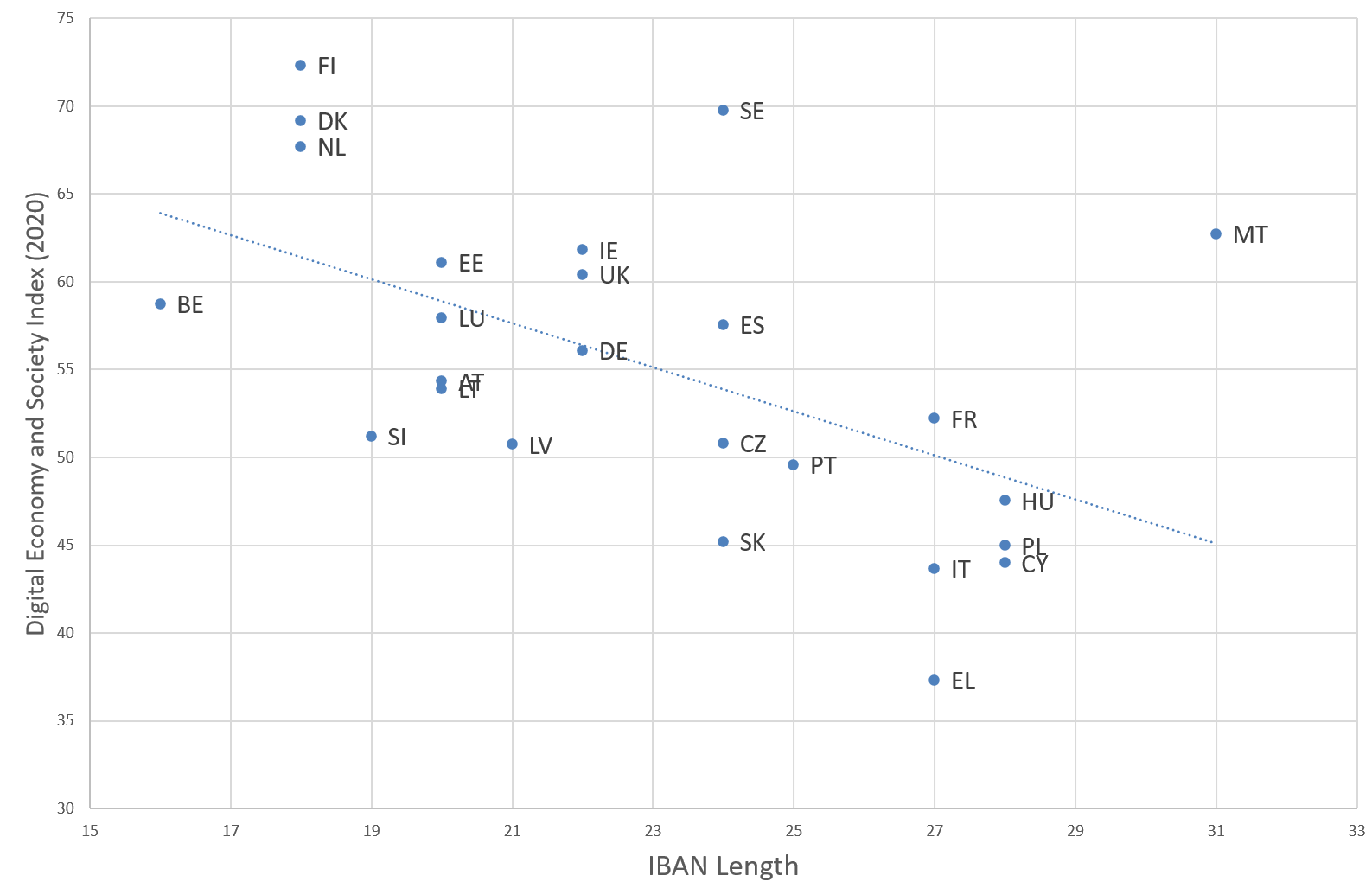Looking at the formats of European country international bank account number (IBAN) codes, I noticed that the IBAN length didn’t seem to be significantly correlated to the country’s population. Could it be related to the country’s IT maturity? I tested that using as a proxy the EU Digital Economy and Society Index, and the results were stunning.
The Digital Economy and Society Index (DESI) summarises the digital performance of EU Member States, across five main dimensions: Connectivity, Human Capital, Use of Internet, Integration of Digital Technology, Digital Public Services. As you can see in the chart, countries with a high DESI score (Finland, Denmark, the Netherlands) have a short IBAN length, while countries with a low DESI score (Hungary, Poland, Cyprus, Italy, Greece) have long IBAN lengths.

Certainly correlation doesn’t imply causation. In a scientific study one would control for several confounding variables, such as population, number of banks, and number of bank accounts. Furthermore such a study would examine the correlation of individual DESI components, and also perform a qualitative analysis regarding each country’s IBAN design. Nevertheless, I can think of two relevant reasons that could explain this relationship.
- Countries trailing in digital performance failed to see the (IT and UX) inefficiencies caused by a long IBAN; the long IBAN is yet another sign of those countries’ IT backwardness.
- Countries lacking in social capital fail to advance in the digital economy and also fail to agree on a suitably short IBAN. Feuds among banks and bank departments resulted in the balkanization of the IBAN numbering space and therefore a needlessly long number.
To dig further, you can download the data associated with the chart as a spreadheet.
Comments Post Toot! TweetUnix make vs Apache Airflow (2024-10-15)
How (and how not) to present related work (2024-08-05)
An exception handling revelation (2024-02-05)
Extending the life of TomTom wearables (2023-09-01)
How AGI can conquer the world and what to do about it (2023-04-13)
Twitter's overrated dissemination capacity (2023-04-02)
The hypocritical call to pause giant AI (2023-03-30)
AI deforests the knowledge’s ecosystem (2023-03-16)
How I fixed git-grep macOS UTF-8 support (2022-10-12)
Last modified: Thursday, August 13, 2020 1:16 pm
Unless otherwise expressly stated, all original material on this page created by Diomidis Spinellis is licensed under a Creative Commons Attribution-NonCommercial 4.0 International License.




